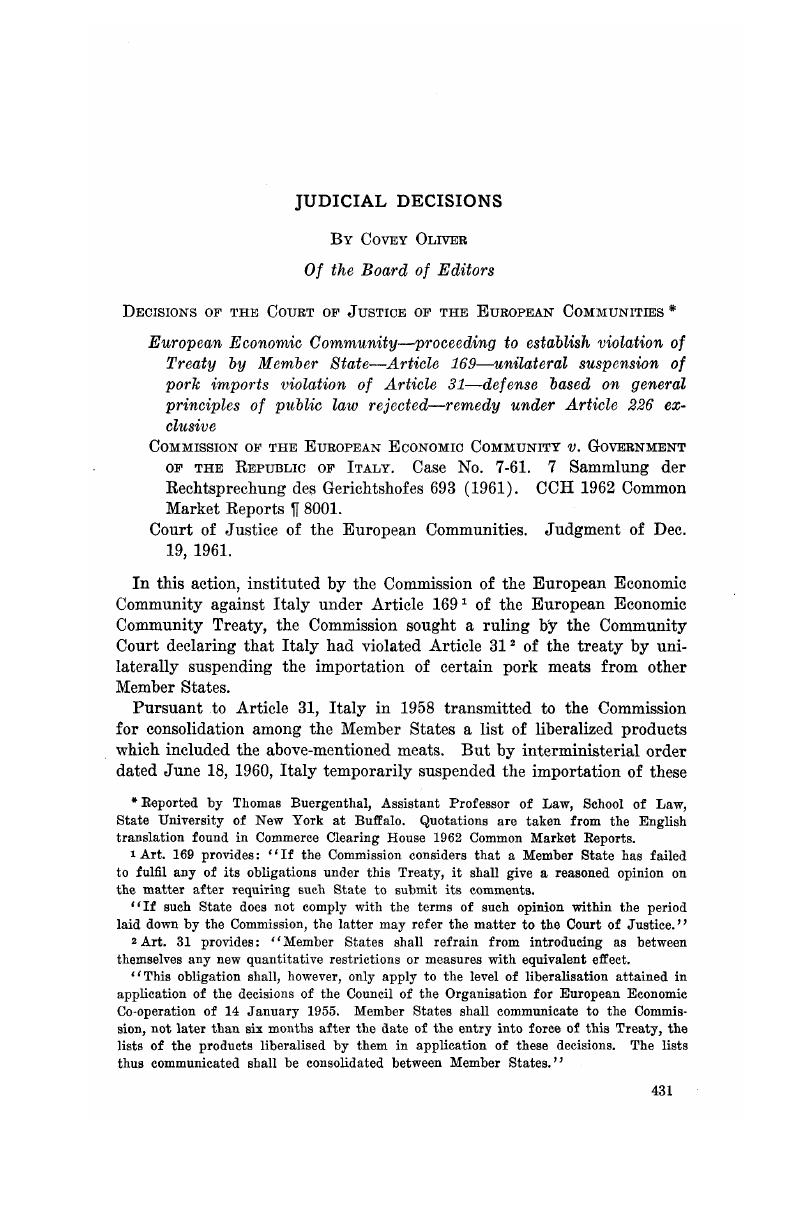No CrossRef data available.
Article contents
Commission of the European Economic Community v. Government of the Republic of Italy
Published online by Cambridge University Press: 28 March 2017
Abstract

- Type
- Judicial Decisions
- Information
- Copyright
- Copyright © American Society of International Law 1963
References
1 Art. 169 provides: “ If the Commission considers that a Member State hasfailed to fulfil any of its obligations under this Treaty, it shall give a reasoned opinion on the matter after requiring such State to submit its comments.
“If such State does not comply with the terms of such opinion within the period laid down by the Commission, the latter may refer the matter to the Court of Justice.”
2 Art. 31 provides: “Member States shall refrain from introducing as between themselves any new quantitative restrictions or measures with equivalent effect.
“This obligation shall, however, only apply to the level of liberalisation attained in application of the decisions of the Council of the Organisation for European Economic Co-operation of 14 January 1955. Member States shall communicate to the Commission,not later than six months after the date of the entry into force of this Treaty, the lists of the products liberalised by them in application of these decisions. The lists thus communicated shall be consolidated between Member States.”
3 Art. 226(1) provides: “ In the course of the transitional period, where there are serious difficulties which are likely to persist in any sector of economic activity or difficulties which may seriously impair the economic situation in any region, a Member State may ask for authorisation to take measures of safeguard in order to restore the situation and adapt the sector concerned to the Common Market economy.”


